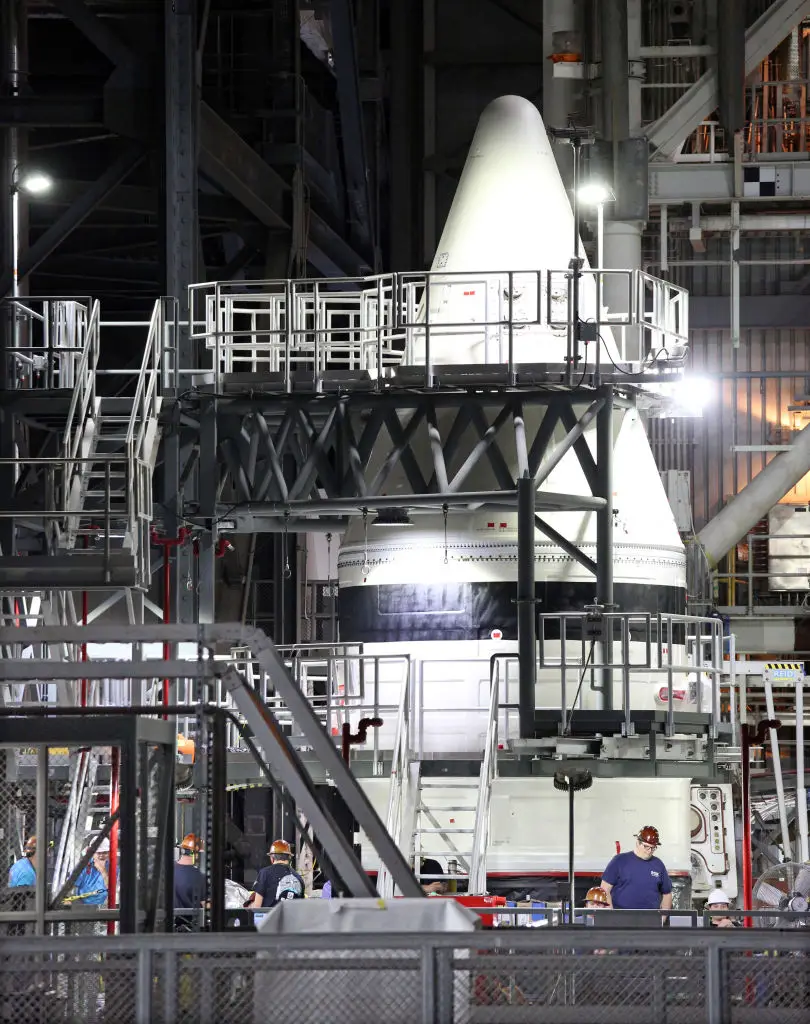
The US Senate recently passed a budget reconciliation bill that includes a hefty $10 billion boost for NASA’s Artemis programme — a decision that has drawn sharp criticism from Elon Musk.
If Donald Trump signs the ‘Big, Beautiful Bill’ bill into law — now that the $10 billion has been set aside for Artemis — it will mark a major victory for legacy aerospace companies like Boeing and Northrop Grumman, who build the programme’s flagship rocket, the Space Launch System (SLS). But for Musk and his private space company SpaceX, this move represents a serious setback.
At the heart of the controversy is the SLS rocket itself. Unlike SpaceX’s fleet of reusable rockets, the SLS is a one-time-use behemoth, with each launch reportedly costing billions of dollars.
Advert
Musk has been blunt in his criticism, calling the rocket “extremely inefficient” and a “jobs-maximizing program, not a results maximizing program.”
Back in 2020, Musk pointed out in an X (formerly Twitter) post that every SLS launch is “a billion dollar rocket is blown up,” with NASA watchdogs recently estimating in a management report that recurring costs are actually closer to $2.5 billion per launch.
The bill's additional funding not only pays for new SLS rockets for upcoming Artemis missions but also helps complete the Gateway lunar station, an orbiting outpost planned to support Moon landings and long-term exploration. Around $4.1 billion of the extra money will fund rockets for Artemis missions 4 and 5, while $2.6 billion will be invested in Gateway infrastructure.
This is a stark turnaround from President Trump’s earlier NASA budget proposals, which suggested phasing out the SLS and Orion spacecraft after Artemis III.
That shift now appears reversed, possibly influenced by Musk’s very public fallout with the Trump administration following the revocation of billionaire Jared Isaacman’s nomination as NASA administrator — a move Musk opposed, having suggested Isaacman for the role himself.

Musk’s fundamental issue with the Artemis programme is more than just costs.
He sees the renewed Moon focus as a distraction from his ultimate goal: sending humans to Mars.
The current Artemis timeline prioritises lunar missions over Martian colonisation, effectively pushing Musk’s dream further into the future. As he put it last year: “the Moon is a distraction” when the real prize is Mars.
The repercussions of this funding decision are significant. It effectively locks NASA into a high-cost, traditional aerospace model centred on expendable hardware, reinforcing the influence of established contractors.
Meanwhile, SpaceX’s innovative approach, which relies heavily on reusability to cut costs and increase launch frequency, faces a diminished role in US space ambitions.
Moreover, the bill includes other funding allocations that touch on Mars exploration, such as $700 million for a Mars Telecommunications Orbiter and a $325 million contract awarded to SpaceX to develop a spacecraft to safely de-orbit the International Space Station at the decade’s end. But the overwhelming investment remains committed to Artemis and the Moon.
In short, if Trump signs this bill, the US space programme will double down on a vision Musk has vocally criticised as inefficient and misaligned with humanity’s long-term space goals.
Whether this funding helps secure American leadership on the Moon — or stifles innovation and delays the journey to Mars — remains to be seen. Either way, Musk’s nightmare is looking more real than ever.
